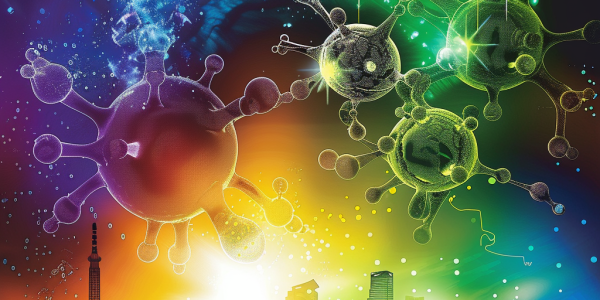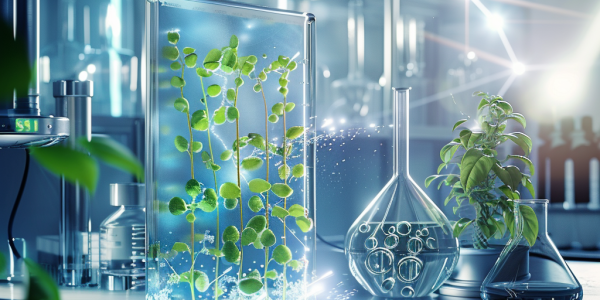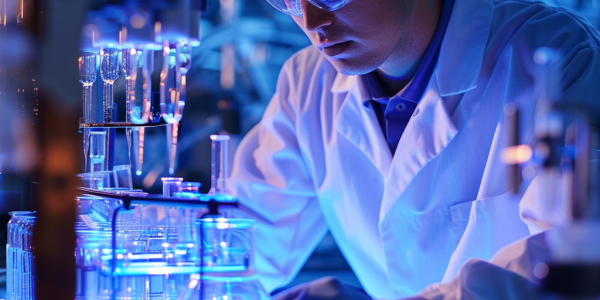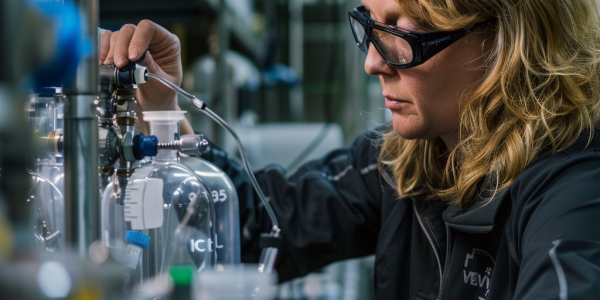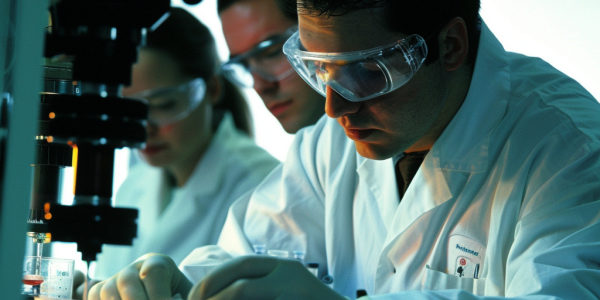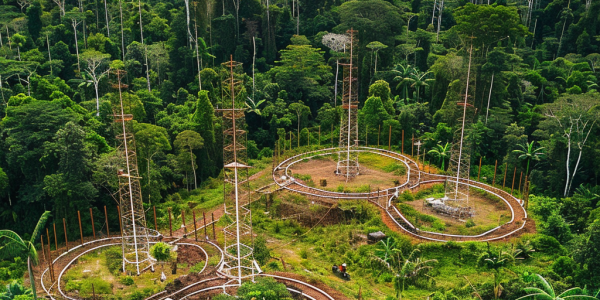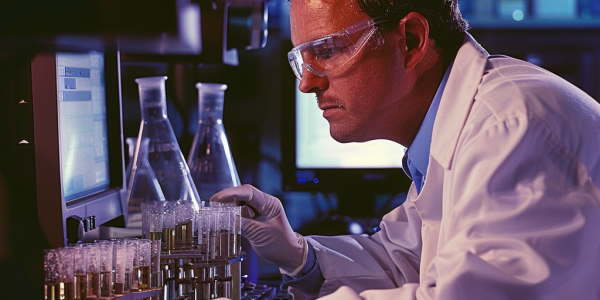Binghamton University Develops Artificial Plants for Air Purification and Energy Generation
Binghamton University researchers have developed innovative artificial plants that purify indoor air and generate renewable energy. Led by Professor Seokheun Choi, this groundbreaking project addresses the urgent need for improved air quality, especially post-COVID-19, while harnessing carbon dioxide to produce oxygen and electricity. Their findings, published in Advanced Sustainable Systems, highlight the potential of these artificial plants to enhance indoor environments and contribute to energy efficiency.
Breakthrough Method Detects CO2-Derived Oxidant in Human Cells
Recent research from the University of São Paulo reveals a groundbreaking method for detecting peroxymonocarbonate, a significant biological oxidant derived from carbon dioxide (CO2) in human cells. This study highlights the physiological effects of elevated CO2 levels, particularly in urban environments, and emphasizes the urgent need to understand CO2 toxicity mechanisms and their implications for human health.
University of Michigan Develops Innovative Artificial Photosynthesis System for Sustainable Ethylene Production
Researchers at the University of Michigan have developed a groundbreaking artificial photosynthesis system that efficiently converts carbon dioxide into ethylene, a key hydrocarbon used in plastics. This innovative approach significantly reduces CO2 emissions compared to traditional methods, paving the way for sustainable fuel alternatives and addressing climate change. The system’s efficiency is five to six times greater than conventional solar energy methods, representing a major leap in sustainable energy solutions.
Revolutionary Carbon Capture Technology Freezes CO2 in Ocean Faster and Safer
A breakthrough study from The University of Texas at Austin introduces a revolutionary carbon capture technology that freezes carbon in the ocean faster and safer than ever before. This chemical-free method accelerates the conversion of CO2 into hydrates for ocean storage, providing a more efficient and eco-friendly alternative to traditional injection. Lead researcher Vaibhav Bahadur highlights the importance of this innovative solution in combating climate change by rapidly sequestering carbon dioxide in the ocean, preventing its release back into the atmosphere. Published in ACS Sustainable Chemistry & Engineering, this research signifies a significant advancement in carbon capture technology with the potential to address the challenges of global warming and enhance climate resilience.
China’s Carbon Emissions Show Signs of Decline
Recent data suggests a potential decline in China’s carbon emissions, marking a significant shift in the country’s environmental impact. After a surge in carbon-dioxide emissions in 2023, there has been a noticeable decrease in emissions, signaling a possible peak in 2023 and a downward trajectory. This development is crucial in the global fight against climate change and could set a new precedent for other nations to follow in reducing their carbon footprint.
Geophysical Research Letters Highlights Study on Climate Sensitivity in CMIP6 Models
Geophysical Research Letters celebrates its 50th anniversary with a study on climate sensitivity in CMIP6 models, shedding light on the complexities of climate models and the challenges in translating model projections into actionable policies. Researchers analyze historical emissions and future scenarios to determine Earth’s response to greenhouse gas emissions, essential for informed decision-making on climate change mitigation.
Revolutionary Approach to Reusing Captured Carbon Developed by Georgia Tech Engineers
Engineers at Georgia Tech have developed a groundbreaking approach to reusing captured carbon, making it more cost-effective and energy-efficient. Their new electrochemical reactor seamlessly integrates into direct air capture systems, transforming CO2 into valuable raw materials like plastics, chemicals, and fuels. This advancement significantly reduces costs and energy demands, enhancing the viability of combating climate change. The innovative design eliminates the need for expensive separation processes, streamlining the carbon capture process and reducing associated costs.
CO2 Levels Impact Airborne Virus Transmission, Study Finds
Discover the groundbreaking research from the University of Bristol on the impact of carbon dioxide levels on airborne virus transmission. Elevated CO2 levels in poorly ventilated spaces create acidic conditions in respiratory droplets, prolonging virus survival and increasing transmission risk. Learn how proper ventilation can mitigate this risk and the broader implications of rising global CO2 levels on public health.
Groundbreaking Climate Experiment in Amazon Rainforest Seeks to Understand Forest’s Role in Global Climate
Learn about the groundbreaking AmazonFACE experiment in the heart of the Amazon rainforest, aimed at injecting carbon dioxide to study the forest’s resilience to climate change. With meticulous monitoring and comprehensive ecological studies, this project seeks to provide crucial insights into the Amazon forest’s role in mitigating global warming and shaping future climate change strategies.
New Research Examines Impact of Rising CO2 Levels on Global Warming
New research led by the University of Washington examines the relationship between CO2 levels and climate sensitivity, providing insights into future temperature projections. By analyzing the most recent ice age, scientists aim to refine their understanding of how CO2 influences global temperatures. The study narrows the estimate of climate sensitivity, offering a more optimistic outlook for future warming scenarios with higher CO2 concentrations.


